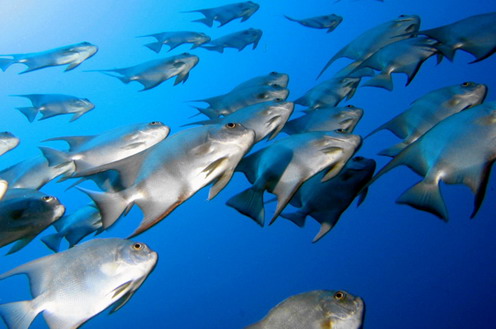Via the General Secretariat of Fisheries
Ministry of Agriculture, Food and Environmental Affairs supports investigation into ships linked to illegal fishing in Antarctic
News - 2015.1.16
Although the identified ships are not flying a Spanish flag but rather that of Equatorial Guinea, the Spanish authorities, in their firm commitment to combating illegal fishing and in defence of responsible fishing and the Spanish fishing sector, would launch action under existing national and EU regulations were they to become necessary following the investigations currently under way into alleged infringements by Spanish citizens, both in the case of the ship-owner and the ship's crew.
If such a link is shown to exist, under the rule of law in Spain and current legislation, such proof and documentary evidence would be necessary as that which enabled the Spanish authorities in recent years to take pioneering and unique action in this same fishing ground thanks to cooperation from other Contracting Parties, such as Australia, leading to the application of severe penalties against citizens linked to illegal fishing activities. Spain has already requested the available information from the New Zealand authorities.
The Spanish fleet is currently active in the region, but is subject to full authorisation and supervision. To that end, the presence of ships linked to illegal fishing in the region and their alleged ties to Spanish interests is unacceptable as this represents a breach of both national and international regulations on the protection of resources and a failure to respect conservation measures applied thereto and established in a multilateral fashion to ensure sustainability.
As part of this firm commitment, it is worth highlighting the recent amendment to Law 3/2001, on State Maritime Fishing (Law 33/2014, of 26 December), which, among other things, represents a strengthening of the powers held by the Spanish authorities in line with current EU regulations on the fight against IUU fishing (Regulation (EC) 1005/2008). Hence, in the field of controlling the import of fishing products from non-EU countries under this Regulation, Spain is already the indisputable EU leader in its application.
The Spanish fleet is subject to the highest standards of control and compliance worldwide, in line with current national and EU regulations, including such tools as the satellite geo-location system and the Electronic Fishing Logbook (EFL). These efforts are accompanied by other transparency initiatives that have emerged in collaboration with the fishing sector, such as those on cooperative surveillance in West Africa, the monitoring protocol for the control of imports and the financial and technical support from the Spanish authorities for the development of the FAO Register of vessels.





